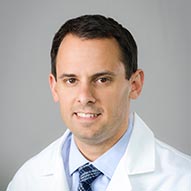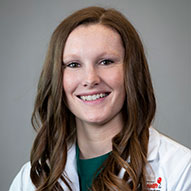Plano
469-303-3000
Fax: 469-303-4520
Frisco
469-303-3000
Fax: 469-303-4520
Prosper
469-303-3000
Fax: 469-303-4520
Request an Appointment with codes: Andrews Institute (Sports Medicine)
OCD is rare, but at the Children’s Health℠ Andrews Institute for Orthopaedics & Sports Medicine, we help dozens of kids and teens overcome it every year. We’re among the most experienced OCD care teams in our county. We use the most advanced technologies and therapies to diagnose and treat patients, so they can get back to sports and other activities.
469-303-3000
Fax: 469-303-4520
469-303-3000
Fax: 469-303-4520
469-303-3000
Fax: 469-303-4520
Request an Appointment with codes: Andrews Institute (Sports Medicine)
At the Children's Health Andrews Institute for Orthopaedics & Sports Medicine, we know you want physicians who are skilled in the latest techniques to care for your child. Our pediatric orthopaedic specialists have extensive training to diagnose and treat bone and cartilage injuries like osteochondritis dissecans with minimally invasive procedures.
Osteochondritis dissecans is a condition of the joint in which blood is not flowing properly to a section of bone, causing some of the bone and surface cartilage (articular cartilage) to decay. Sometimes, the affected bone and cartilage will break loose and irritate the joint, causing pain, tenderness and swelling. (Learn more about articular cartilage injury.)
Pediatric patients come to the Children's Health Andrews Institute from all over North Texas for our advanced and effective tests, treatments and therapies, all available in one convenient location. Fortunately, osteochondritis dissecans is a rare condition, and can most often be treated without surgery.
Osteochondritis dissecans is a joint injury that occurs in children and teens because of their active lifestyles — especially those who play sports.
While the exact cause of osteochondritis dissecans is unknown, physicians believe repetitive, high-impact strain or stress to the bone may be a factor. It’s commonly found in the knee, ankle and elbow, though it can affect any joint in the body.
Osteochondritis dissecans affects different children in different ways. Some children with mild cases may not experience symptoms, while others with loose bone or cartilage fragments may experience significant and persistent pain.
Signs and symptoms of osteochondritis dissecans include:
If your child is experiencing joint pain, swelling and limited range of motion, our physicians will conduct a thorough diagnosis to determine if osteochondritis dissecans is the problem.
Diagnostic testing may include:
After these tests, your physician will meet with you and your child to review results and discuss the best, least-invasive treatment plan.
At the Children's Health Andrews Institute, we’re among the most experienced OCD care teams in our county. We use the most advanced technologies and therapies to diagnose and treat patients, so they can get back to sports and other activities.
The treatment process starts with a thorough examination of each patient’s affected joint. For patients with minor OCD, we typically help them modify their activities in ways that rest the joint so it can heal. We also use physical therapy and rehabilitation to help each patient recover and stay strong.
For patients who need more extensive treatment, we create a custom care plan based on their age and how serious their OCD is. Treatment options include:
Because OCD typically affects very active kids and teens, it can be hard for them to slow down while their injury is treated and healing. It's crucial to rest and heal fully, because moving back into activities too soon can make the injury worse, and lead to long-term knee problems.
We work with patients and families to help them understand their child’s condition, and what the treatment and recovery process will look like. Minor OCD can take six to 12 months to heal, while recovering from more severe OCD usually takes about a year. We support our patients from their diagnosis through years after recovery. As they heal, we also help them slowly move back into their activities and regain their strength, while avoiding the risk of reinjuring their knee.







No, it’s a relatively rare condition. When it does happen, it most often occurs in the knee.
Yes, most children can heal from osteochondritis dissecans without surgery. Physicians start with conservative treatment approaches including activity modification and rehab. Strengthening the muscles in and around the affected joint will help protect it from further injury.